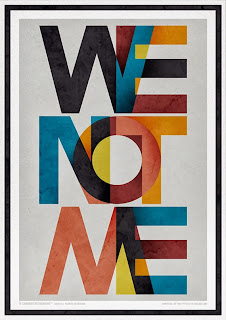 Recently, two articles caught my eye. One was a Johns Hopkins study showing that surprisingly, caregivers live longer than their non-caregiving counterparts. The other article reported on the happiest country in the world according to the World Happiness Report – Denmark. Why are Danes so happy? Apparently, their society is one of equals supporting each other. Denmark is a country based on “WE”, not “ME”.
Recently, two articles caught my eye. One was a Johns Hopkins study showing that surprisingly, caregivers live longer than their non-caregiving counterparts. The other article reported on the happiest country in the world according to the World Happiness Report – Denmark. Why are Danes so happy? Apparently, their society is one of equals supporting each other. Denmark is a country based on “WE”, not “ME”.
Here in North America, we might have something to learn from looking at Danish society and putting their elements of happiness together with caregiver longevity. Rather than aspiring to independence and the accumulation of personal wealth, we should consider championing the idea of interdependence and altruism. It’s making Danes happy and it’s helping caregivers live longer – that sounds good to me.
It was the Johns Hopkins Center for Aging and Health that conducted the longevity study in caregivers. John Roth, Center Director, admits that caregivers faced with levels of extreme stress along with little social support will certainly not be happy or healthy. But, Roth says, “In many cases, caregivers report receiving benefits of enhanced self-esteem, recognition and gratitude from their care recipients. Thus, when caregiving is done willingly, at manageable levels, and with individuals who are capable of expressing gratitude, it is reasonable to expect that health benefits might accrue in those situations…If highly stressful situations can be avoided or managed effectively, caregiving may actually offer some health benefits for both the care recipients and the caregivers, including reduced risk of death for those providing care.”
So, what might government policies look like that take into account reasonable levels of caregiving? Denmark has some answers to that question. Some of the happiness indicators under review in the World Happiness Index were a sense of social support, freedom to make life choices and a culture of generosity. Of course, these were in addition to financial wellbeing, healthy life expectancy at birth and a lack of corruption in political leadership. The Danish government has programs that support parents – maternity and paternity leave is generous. Danes believe that access to health care is an absolute right and the continuity of care is built in to a system that is based on the central role of the family physician. Gender equality is ingrained in social assistance programs, enabling more women to work and contribute financially to their households. Finally, Danish culture is one that cultivates a sense of optimism. They combat the effects of an inhospitable climate with the hospitality of the home. They seek out and share something called hygge – cultivated cosiness.
As a caregiver, I want to share ‘hygge’ with my loved ones at home every day. I’m betting that if policymakers asked caregivers, we would have some really good ideas about what makes a happy and long life for ourselves and our families.




















